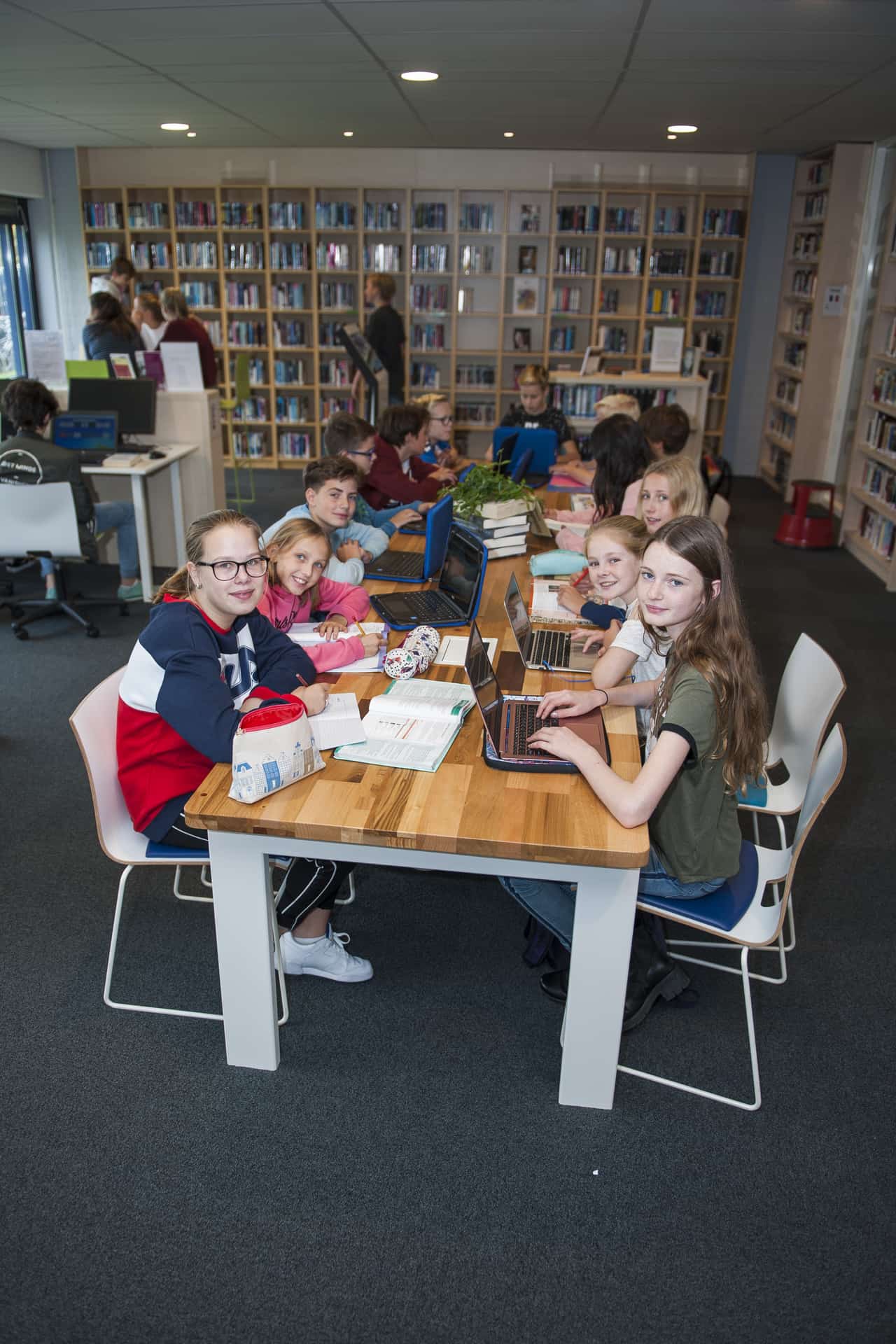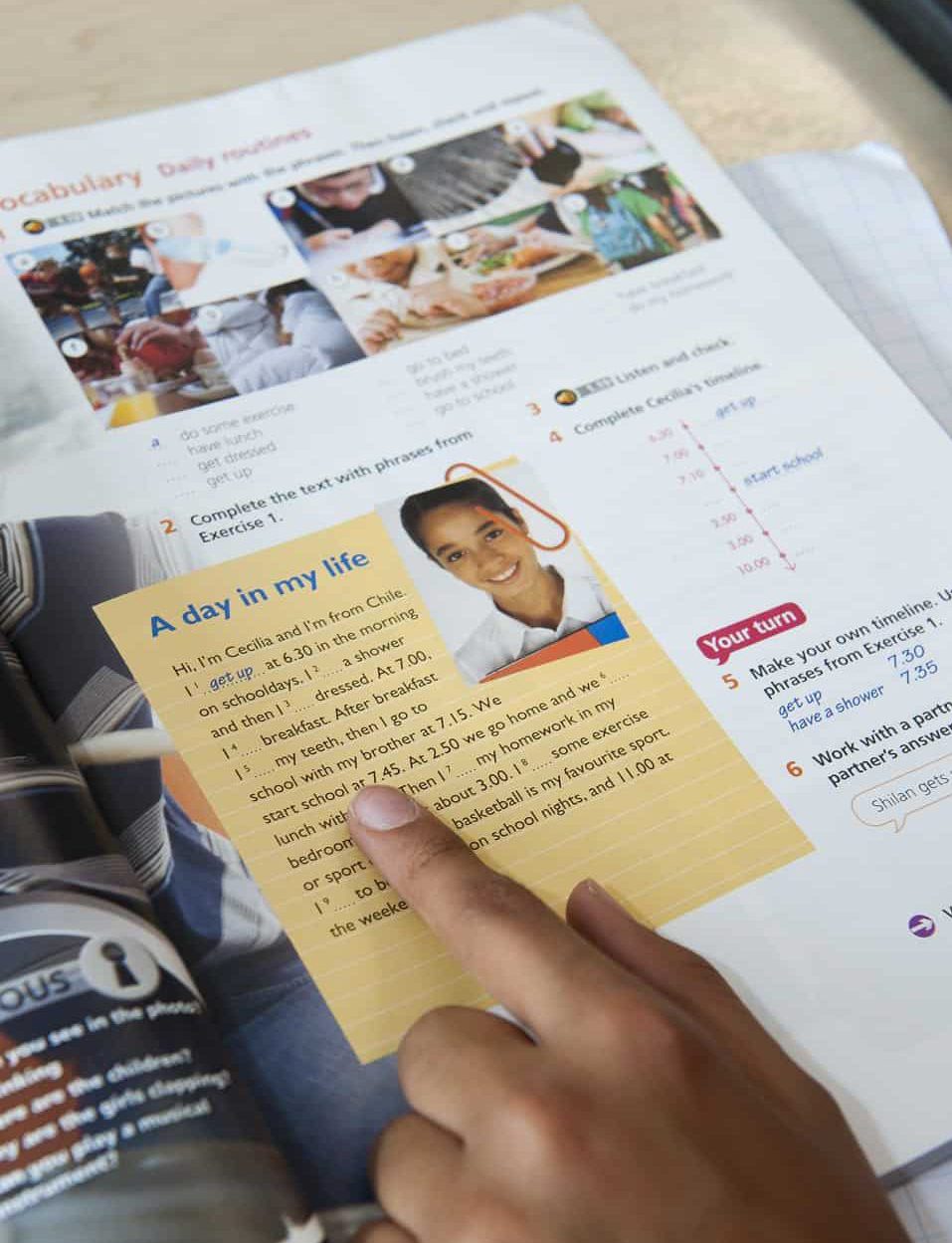Hoe wordt tweetalig onderwijs
op het JPT vormgegeven?
Voor een grote groep leerlingen kan een tweetalige opleiding een welkome uitdaging zijn.
Het maakt het mogelijk alles uit hun schooltijd te halen: zij leren een tweede taal zeer goed te spreken en te gebruiken en zij oriënteren zich meer op de internationale omgeving. Tweetalig onderwijs wordt aangeboden op de havo en het vwo. Als je je inschrijft voor een tto-brugklas laat je ons weten waarom je dit wil in een motivatiebrief. Je motivatiebrief lever je in tegelijkertijd met je aanmeldformulier/digitale aanmelding in de inschrijfweek van 25 tot 31 maart.

Het tweetalige programma leidt tot een internationaal erkend diploma
Het Jac. P. Thijsse college is officieel door het Nuffic geaccrediteerd als senior tto-school.
Tweetalig onderwijs (tto) houdt in dat in de onderbouw een aanzienlijk aantal lessen in het Engels wordt gegeven, zo’n 50% van alle lessen wordt hoofdzakelijk Engels gesproken en ook de boeken, werkstukken en toetsen zijn in het Engels. Uit onze ervaringen is gebleken dat leerlingen hier erg snel aan gewend raken.
In het hele tto is er een omvangrijk cultureel programma met Engelstalig theater, gastsprekers, musea, Engelstalige voorstellingen en excursies naar het buitenland.
Tweetalig onderwijs betekent niet alleen dat leerlingen op Engelstalig gebied snel heel goed worden. Net zo belangrijk is de internationale ontwikkeling van leerlingen, zowel binnen Europa als daarbuiten. Daarbij zal vaak in het Engels gecommuniceerd worden maar dat kan ook heel goed plaatsvinden samen met Franse, Italiaanse of Spaanse leerlingen.
Kort gezegd, het tweetalig onderwijs:
- maakt leerlingen flexibel en wendbaar en bereidt ze voor op een samenleving die deze vaardigheden vraagt;
- is een goede oriëntatie op een internationale samenleving;
- bereidt leerlingen voor op een wereld zonder grenzen;
- biedt leerlingen een mogelijkheid om een tweede taal zeer goed te spreken en te gebruiken;
- bereidt leerlingen beter voor op een studie waar boeken en colleges steeds vaker Engelstalig zijn;
- bereidt leerlingen beter voor op en biedt grotere kansen bij toegang tot internationale opleidingen en studies in het buitenland;
- biedt kansen om naast het Nederlandse examen internationaal erkende certificaten te halen.
Ben je geïnteresseerd in Tweetalig Onderwijs?
Elk jaar organiseren we in maart een ‘First Date’.
Docenten staan je dan graag te woord in het Nederlands of Engels en er worden enkele lessen in het Engels gegeven. Elke toekomstige brugklasser met een havo- of vwo-advies die geïnteresseerd is in tweetalig onderwijs schrijft zich zeker in voor deze ‘date’. Begin maart wordt deze date jaarlijks georganiseerd. Klik hier om je in te schrijven. Natuurlijk is de Open Dag ook een goede kans om meer te weten te komen over het tweetalig onderwijs.

International Baccalaureate (IB)
Het Jac. P. Thijsse College heeft de kandidaatstatus* voor het International Baccalaureate (IB) Middle Years Programme (MYP) en we hopen dit jaar geautoriseerd te worden als IB-school.
*Alleen scholen geautoriseerd door de IB-organisatie mogen een of meerdere van de IB-programma’s aanbieden. De kandidaatstatus geeft geen garantie op autorisatie. Meer informatie is te vinden op de website van de IB-organisatie op www.ibo.org.
IB is een wereldwijd gehanteerd onderwijsconcept. Wereldwijd zijn er ruim 4.000 scholen die het IB-programma aanbieden.
De nadruk bij IB ligt op het versterken van je academische vaardigheden en op jouw persoonlijke ontwikkeling.
Als toevoeging op het tweetalig programma biedt het Jac. P. Thijsse College twee richtingen aan: English-B voor de bovenbouw van de havo, en English-A Language & Literature voor de bovenbouw van het vwo met uitzicht op een internationaal erkend IB-certificaat.
Het MYP wordt aangeboden in 3vwo en 4vwo en afgesloten met een examen. Je kunt MYP volgen op de locatie Supreme College Nederland: www.supremecollege.nl. Klik hier om de Supreme College Guide te openen voor meer informatie.
De rest van deze tekst is, gezien het Engelstalige karakter van het onderwerp, in het Engels.
Jac. P. Thijsse College is a Candidate School* for the MYP. This school is pursuing authorization as an IB World School. These are schools that share a common philosophy—a commitment to high quality, challenging, international education that Jac. P. Thijsse College believes is important for our students.
*Only schools authorized by the IB Organization can offer any of its four academic programmes: the Primary Years Programme (PYP), the Middle Years Programme (MYP), the Diploma Programme, or the Career-related Programme (CP). Candidate status gives no guarantee that authorization will be granted. For further information about the IB and its programmes, visit www.ibo.org
IB is an educational concept used all over the world. Worldwide, there are over 4,000 schools that offer the IB programme.
The emphasis at IB is on strengthening your academic skills and your personal development.
As an addition to the bilingual programme, Jac. P. Thijsse College offers two options: English-B for the upper grades of the havo, and English-A Language & Literature for the upper grades of the vwo with the prospect of an internationally recognised IB-certificate.
MYP is offered in 3vwo and 4vwo and concludes with an exam. You can take MYP at Supreme College Netherlands: www.supremecollege.nl. Click here to open the Supreme College Guide for more information.
IB mission statement
The International Baccalaureate aims to develop inquiring, knowledgeable and caring young people who help to create a better and more peaceful world through intercultural understanding and respect.
To this end the organization works with schools, governments and international organizations to develop challenging programmes of international education and rigorous assessment.
These programmes encourage students across the world to become active, compassionate and lifelong learners who understand that other people, with their differences, can also be right.
IB learner profile
The aim of all IB programmes is to develop internationally minded people who, recognizing their common humanity and shared guardianship of the planet, help to create a better and more peaceful world.
IB learners strive to be:
- Inquirers
They develop their natural curiosity. They acquire the skills necessary to conduct inquiry and research and show independence in learning. They actively enjoy learning and this love of learning will be sustained throughout their lives. - Knowledgeable
They explore concepts, ideas and issues that have local and global significance. In so doing, they acquire in-depth knowledge and develop understanding across a broad and balanced range of disciplines. - Thinkers
They exercise initiative in applying thinking skills critically and creatively to recognize and approach complex problems, and make reasoned, ethical decisions. - Communicators
They understand and express ideas and information confidently and creatively in more than one language and in a variety of modes of communication. They work effectively and willingly in collaboration with others. - Principled
They act with integrity and honesty, with a strong sense of fairness, justice and respect for the dignity of the individual, groups and communities. They take responsibility for their own actions and the consequences that accompany them.
- Caring
They show empathy, compassion and respect towards the needs and feelings of others. They have a personal commitment to service, and act to make a positive difference to the lives of others and to the environment. - Risk-takers
They approach unfamiliar situations and uncertainty with courage and forethought, and have the independence of spirit to explore new roles, ideas and strategies. They are brave and articulate in defending their beliefs. - Balanced
They understand the importance of intellectual, physical and emotional balance to achieve personal well-being for themselves and others. - Reflective
They give thoughtful consideration to their own learning and experience. They are able to assess and understand their strengths and limitations in order to support their learning and personal development.